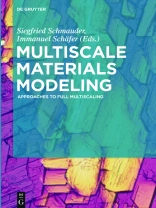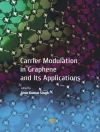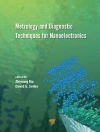This book presents current spatial and temporal multiscaling approaches of materials modeling. Recent results demonstrate the deduction of macroscopic properties at the device and component level by simulating structures and materials sequentially on atomic, micro- and mesostructural scales. The book covers precipitation strengthening and fracture processes in metallic alloys, materials that exhibit ferroelectric and magnetoelectric properties as well as biological, metal-ceramic and polymer composites. The progress which has been achieved documents the current state of art in multiscale materials modelling (MMM) on the route to full multi-scaling.
Contents:
Part I: Multi-time-scale and multi-length-scale simulations of precipitation and strengthening effects
Linking nanoscale and macroscale
Multiscale simulations on the coarsening of Cu-rich precipitates in α-Fe using kinetic Monte Carlo, Molecular Dynamics, and Phase-Field simulations
Multiscale modeling predictions of age hardening curves in Al-Cu alloys
Kinetic Monte Carlo modeling of shear-coupled motion of grain boundaries
Product Properties of a two-phase magneto-electric composite
Part II: Multiscale simulations of plastic deformation and fracture
Niobium/alumina bicrystal interface fracture
Atomistically informed crystal plasticity model for body-centred cubic iron
FE2AT ・ finite element informed atomistic simulations
Multiscale fatigue crack growth modeling for welded stiffened panels
Molecular dynamics study on low temperature brittleness in tungsten single crystals
Multi scale cellular automata and finite element based model for cold deformation and annealing of a ferritic-pearlitic microstructure
Multiscale simulation of the mechanical behavior of nanoparticle-modified polyamide composites
Part III: Multiscale simulations of biological and bio-inspired materials, bio-sensors and composites
Multiscale Modeling of Nano-Biosensors
Finite strain compressive behaviour of CNT/epoxy nanocomposites
Peptide・zinc oxide interaction
Giới thiệu về tác giả
Siegfried Schmauder and Immanuel Schäfer, Universität Stuttgart, Germany.












